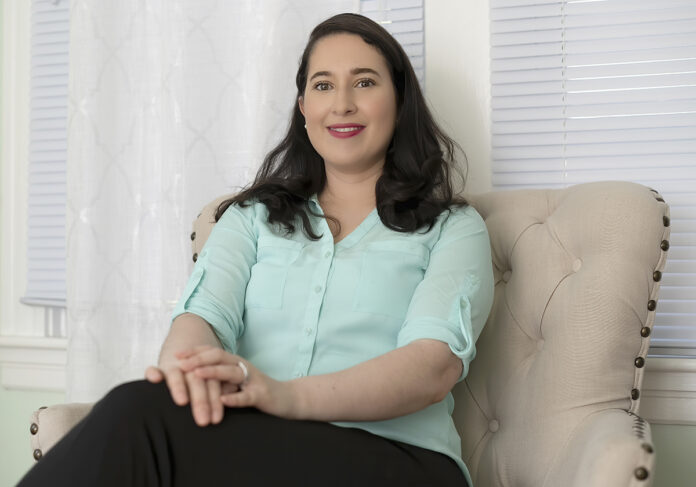Racial and ethnic minorities in Rhode Island are facing many barriers when seeking mental health treatment and services, according to a report released recently by the Rhode Island Mental Health Parity Initiative.
The initiative, a project of the Mental Health Association of Rhode Island, found that refugees and non-English speakers are having difficulty getting treatment because of cultural and language differences, and the social stigma within these groups associated with seeking mental health assistance.
“It is difficult enough for Rhode Islanders who speak English as their primary language to navigate our complicated health care system,” said Laurie-Marie Pisciotta, the association’s executive director. “Imagine how much harder it is for people who speak little or no English.”
A lack of diversity among mental health providers creates language and cultural barriers, but also makes it difficult for ethnic and cultural minorities to find providers who they can connect with and trust, according to the report.
In fact, nearly 86% of psychologists in the U.S. workforce are white, according to the American Psychological Association. The R.I. Department of Labor and Training does not collect occupational data by race.
‘There’s a lot of shame in asking for help, and it’s very generational.’
JENNIFER GAVIRIA, Latino Mental Health Network of Rhode Island co-founder
The report, based on discussions with three diverse focus groups, is a supplement to an initial 2019 study on Rhode Island’s mental health parity.
In releasing the new findings, Pisciotta said it is critical to build a diverse and competent mental health care system, citing the report’s recommendation to invest in a network of bilingual and bicultural professionals within the state’s existing behavioral health network, in addition to boosting education about mental health from kindergarten to 12th grade.
She said it would take widespread investment to help change the public attitudes about mental health and reach Rhode Island’s various racial and ethnic groups.
Jennifer Gaviria, a co-founder of the Latino Mental Health Network of Rhode Island, said people looking to get help who are members of Spanish-speaking, Black and Asian communities, come from a culture that looks down on mental health treatment.
“There’s a lot of shame in asking for help, and it’s very generational,” said Gaviria. “Older generations don’t really understand what services are out there, what therapy is and what confidentiality really means. [Many of them] think people are going to air out their dirty laundry to the world.”
Gaviria’s group is working to lower the barriers, in part by recruiting and retaining aspiring and existing multilingual and Latino mental health providers, including psychologists, social workers, therapists, prescribers and psychiatrists.
Sandra Victorino, another founder of the Latino Mental Health Network of Rhode Island, said she grew up in a Mexican American family with parents who were migrant workers and didn’t understand her pursuit of mental health as a profession.
When multilingual and multicultural people do look into going into mental health services, Victorino said there’s very little to retain them, especially in Rhode Island, even when they’re the only Spanish-speaking providers for a practice or facility.
“I’ve been the only one and I know so many others that are the only bilingual health care professional in the room,” Victorino said. “And there’s no way to entice these clinicians to stay, which causes them to burn out quicker.”
Rhode Island College does have a program looking to offer incentives, including scholarships, to diversify the mental health care professions.
Two grant programs at RIC’s School of Social Work have been funded through the federal Health Resources Services Administration, one of which is the Rhode Island Integrated Care Education project and focuses on increasing the number of social workers from disadvantaged backgrounds to work with Rhode Island’s most vulnerable populations.
The second grant program, spearheaded by Warren Miller at RIC, has a similar goal, but with a focus on risky substance use and the opioid epidemic, in which $10,000 stipends are granted to students from disadvantaged backgrounds to enter this field. Miller said he hopes that these grants give aspiring multilingual and multicultural mental health professionals a pathway, but he recognizes that the stigma of going into the field itself brings another obstacle.
“Racially and ethnically diverse students must contend with quite a bit on a regular basis in their personal and academic lives,” said Miller.
Gaviria said that these stipends are helpful for those that will eventually come out with less debt, but that the salaries for these multilingual providers need to be raised to retain them. She said mental health providers’ salaries in Rhode Island have not changed in the past 10 years.
“When we are educating kids on career paths, we should be reaching the populations that are reflective of Rhode Island. And then hire and retain them,” said Gaviria. “If we don’t, it’s only adding to the systematic racism and lack of access.”
Alexa Gagosz is a PBN staff writer. Contact her at Gagosz@PBN.com.












